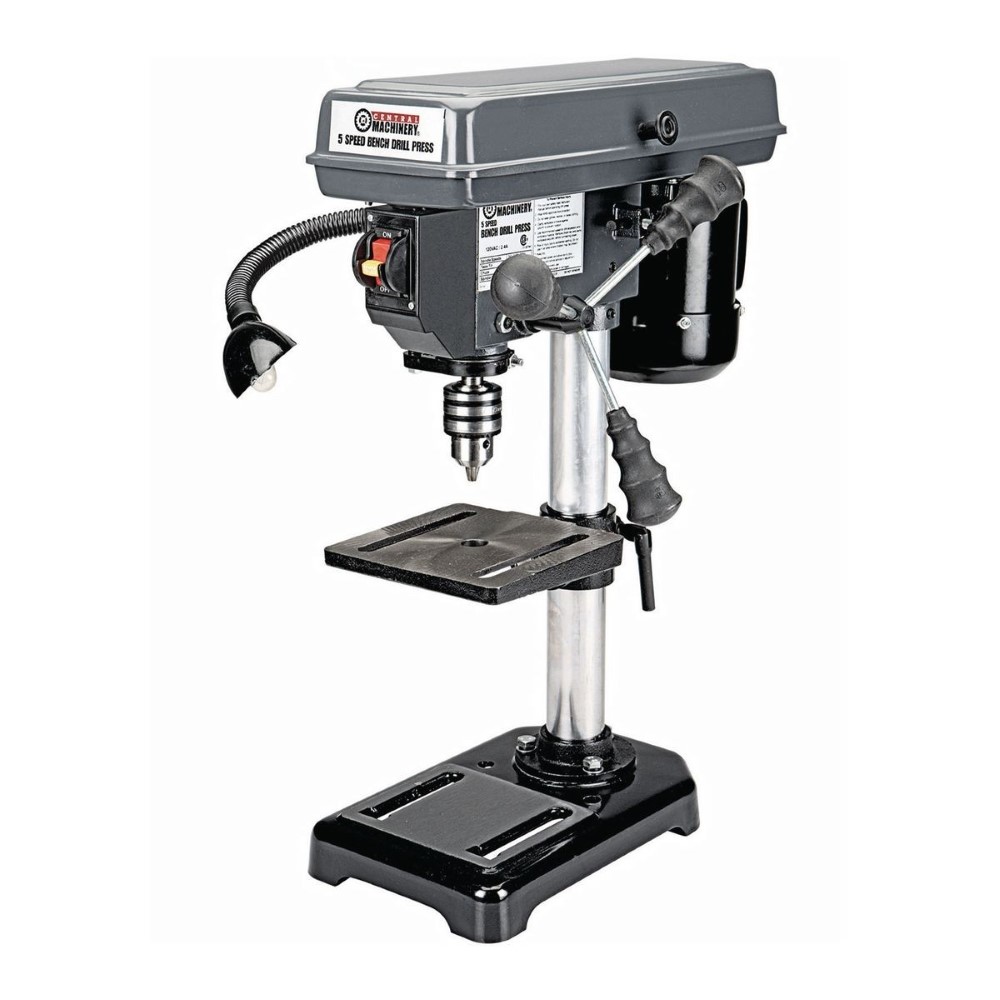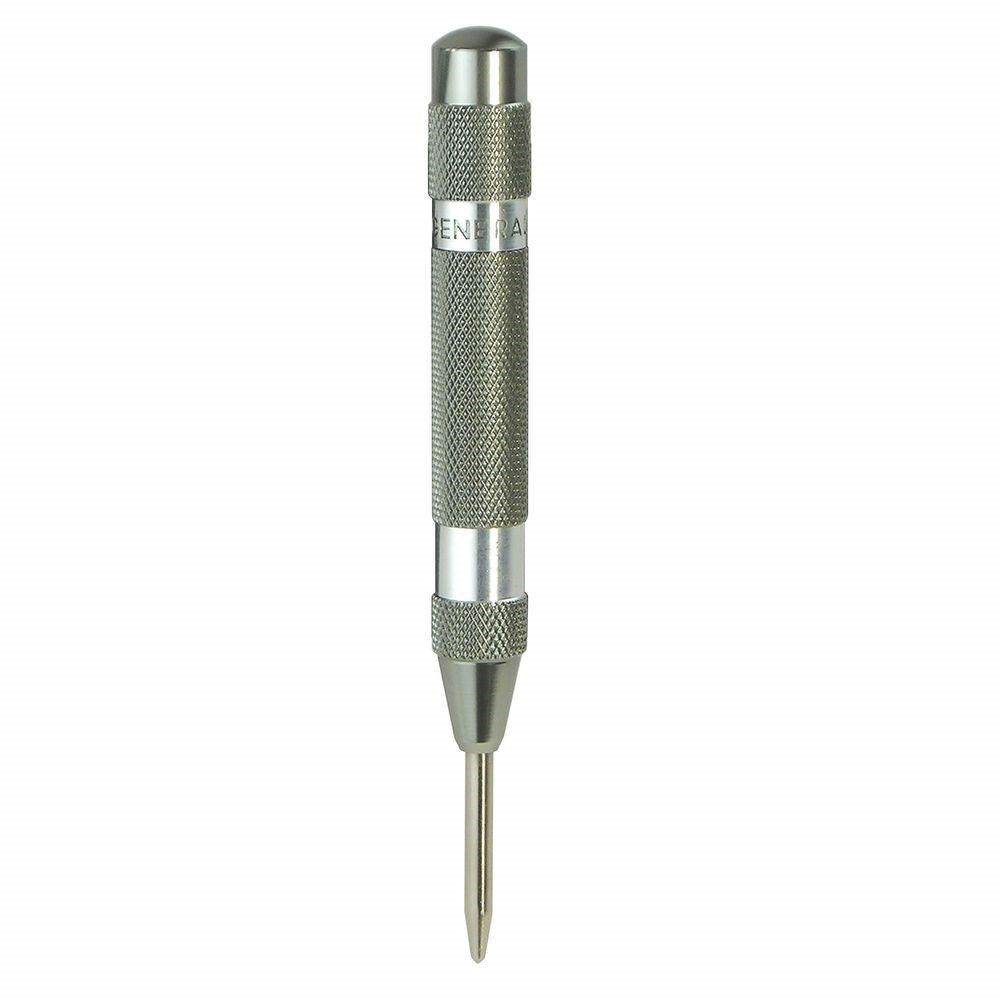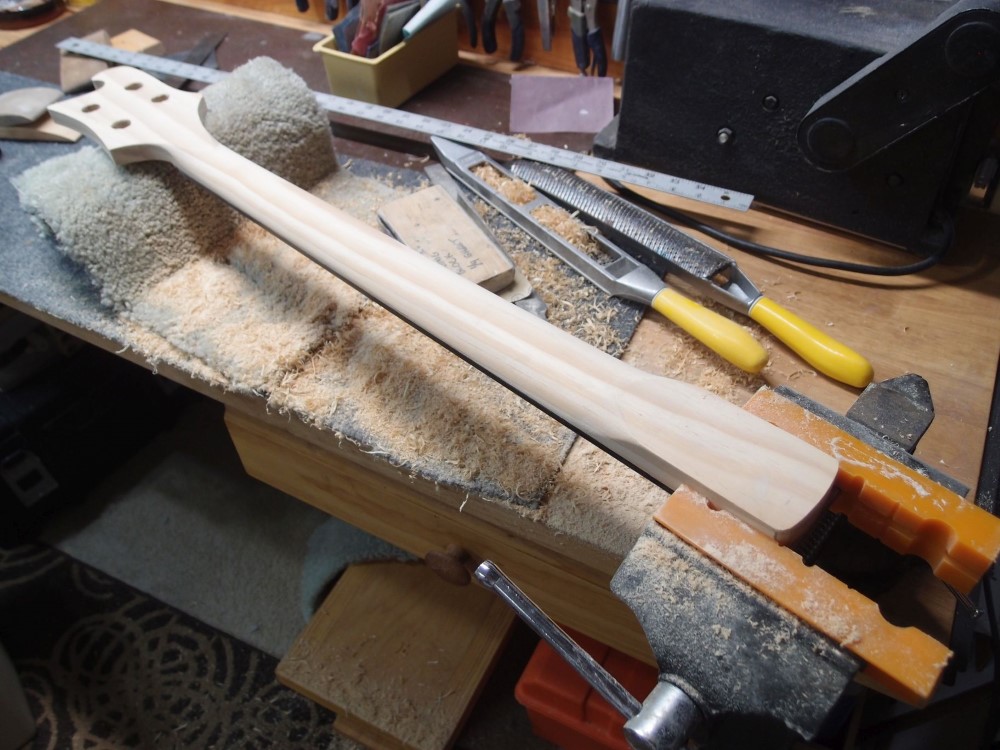Drilling

For drilling precisely spaced holes, like guitar tuners, make ( or buy ) a template. I make mine out of scrap maple. If you mess it up, throw it away, NBD. Eventually, you'll get it right, and then forevermore.
There are a few tricks too. Sometimes I will lower a drill bit into the dimple and let it shake the part until it centers itself, then push down for the hole. To drill chrome, I chuck the bit all the way up, so just a 1/4" protrudes. This way it can't bend and skate over the surface. Any time you are drilling metal, you must start small and enlarge in steps. That is a good idea in hardwood as well if you want accuracy. Unless you have a template, in which case, just go for it. If you're not sure how something will drill, ruin a few pieces of scrap to get a feel for it.
There are all different types of drill bits as well. Coated drill bits are pushed hard nowadays. These are ok for wood and soft metals but are unlikely to finish even one hole in steel. Titanium-coated sets are very cheap. Black oxide is better. For steel, only cobalt-steel bits will do. If you want just one set of drill bits, spring for cobalt, and you will be able to drill anything. I keep one set of black oxides for wood, and a set of cobalt for metal. Unlike coated bits, cobalts can be re-sharpened, and last a lifetime - a good investment.
If you don't have a good set of Forstner bits, get one. Don't buy drill bits and other cutting tools at Harbor Freight, they are made of inferior metal and will dull up quickly if they even start out sharp.

A punch like this is invaluable for making a precise dimple to start a hole.
Common tap and drill sizes:
| Thread | drill (for screw) | drill (for tap) | drill (for rod) |
|---|---|---|---|
| 4-40 | 3/32" (0.0938") | #43 (0.0890") | 7/64" (0.1094") |
| 4-48 | 3/32" (0.0938") | #42 (0.0935") | 7/64" (0.1094") |
| 6-32 | 7/64" (0.1094") | #35 (0.1100") | 9/64" (0.1406") |
| 8-32 | 9/64" (0.1406") | #29 (0.1360") | 5/32" (0.1563") |
| 10-24 | 5/32" (0.1563") | #25 (0.1560") | 3/16" (0.1875") |
| 10-32 | 5/32" (0.1563") | #21 (0.1590") | 3/16" (0.1875") |
| 12-24 | 11/64 (0.1719") | #16 (0.1770") | 7/32" (0.2188") |
| 1/4-20 | 13/64" (0.2031") | #7 (0.2010") | 1/4" (0.2500") |
| M3 | 2.5mm | 3mm | |
| M4 | 3.4mm | 4mm | |
| M5 | 4.2mm | 5mm | |
| M6 | 5.2mm | 6mm |
Note: I have quoted four decimal places above. For working in wood and soft metals, two decimal places would be enough. For steel, three decimal places. Tap and die kits typically include all the odd-sized drill bits, the only difficulty is keeping them together with the appropriate tap!


Questions or Inquiries?
Just want to say Hello? Sign the .